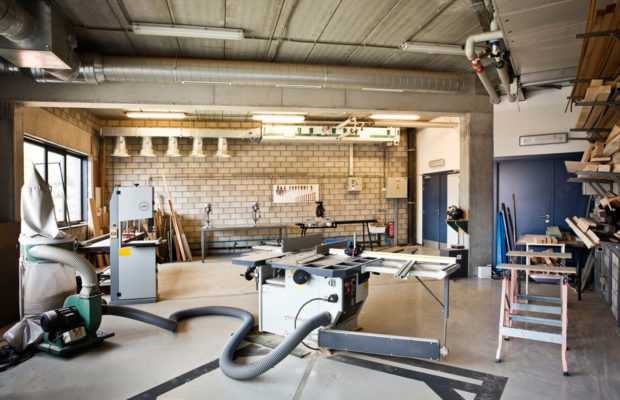The Ins And Outs Of Setting Up A Workshop

Workshops can be used for all sorts of things: repairing cars, making furniture and building new products. But how exactly do you set one up? Take a look at these ideas for setting up your own workshop-based business.
Workshop Essential #1: Organized Storage
No matter what you’re using your workshop for, you’ll need a logical storage system. Workshops are often cluttered with all sorts of tools, parts, and equipment, so making it so that it’s all organized can be a bit of a hassle.
A good place to start is to get some cheap drawers from either Office Max or Home Depot. Don’t go down the route of using old coffee jars to store your screwdrivers and paint brushes: you’ll wind up not knowing where anything is. Rolling toolboxes are another idea which works well, especially if you find yourself using the same tools over and over again. Having your tools at your side at all times mean that you don’t have to keep walking backward and forwards to the tool drawer to find the right spanner size that you need.
Workshop Essential #2: Clean Air
If you’re working with wood, your workshop will quickly fill with dust. Being exposed to high levels of dust all day long isn’t good for your lungs, so it’s a good idea to starting thinking about solutions early on. The best solution is a wood working dust collection duct that will take the dust out of the atmosphere and dump it outside.
Workshop Essential #3: Great Lighting
Often when you’re working in a workshop, you’ll have to get underneath something to apply the finishing touches. The problem is that when you’re underneath an object, like a car, the light hanging from your workshop ceiling is no good, even if it is a 200W beast.
The solutions? Well, there are a couple of ways around the problem. One idea is to place mirrors on the ground at a 45-degree angle to reflect light along the floor. This works some of the time, but because the light is scattered, it isn’t always particularly effective. Another idea is to attach light fixtures to your walls that throw down light obliquely. This helps you avoid having to use a flashlight between your teeth while you work on a delicate project.
The final option is to get a head mounted LED torch so that you can see what you’re working on in tight spaces.
Workshop Essential #4: A Computer That Can Survive
Workshops that are full of dust and grime are a dangerous place for today’s modern electronics. Laptops take air in from the front, often unfiltered, and then pump it past their components. After a while in the workshop, these components can become encased in dust, heating them up and causing them to throttle back their performance.
It’s a good idea, therefore, to get a durable computer that is suitable for the shop. There are now plenty of enclosures on the market that filter out dust using magnetized dust filters, enabling workshop businesses to buy computers that can survive the perils of the workshop environment.













 © 2024
© 2024
0 comments